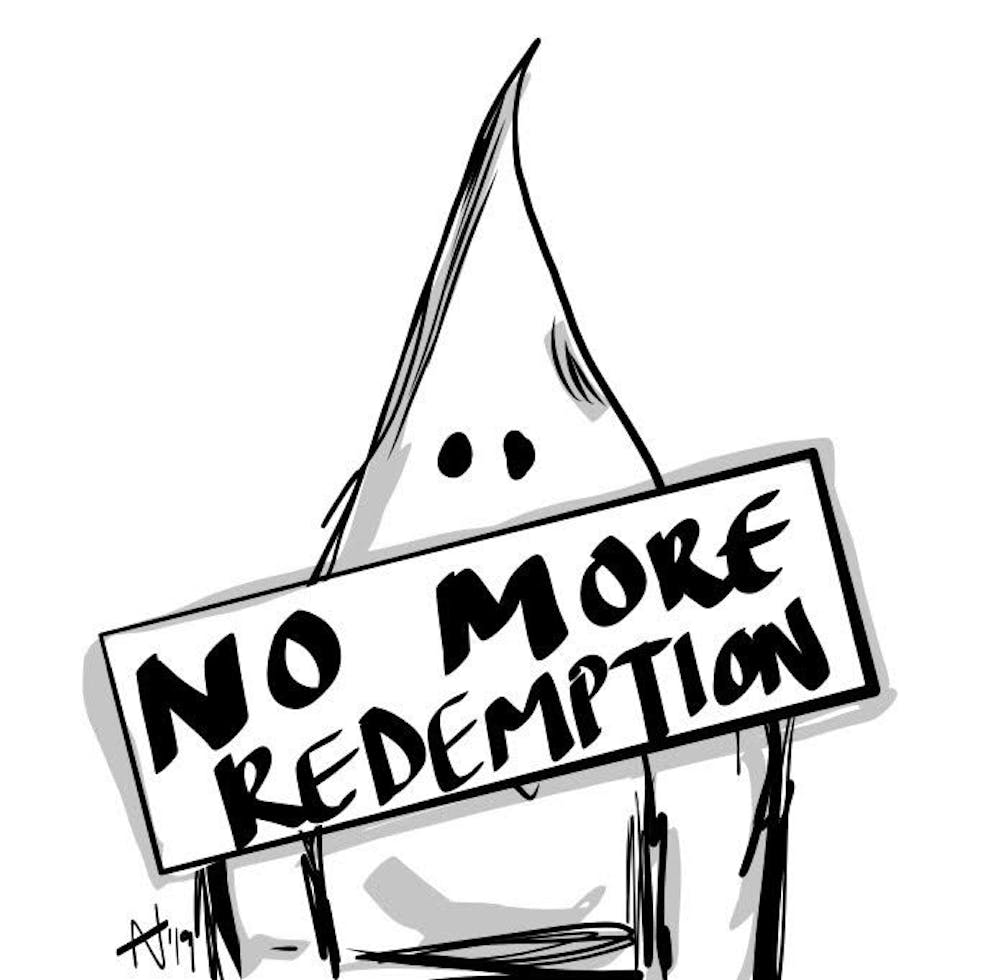As my all-time favorite shirt says, “Freedom of speech is not a license to act stupid.”
As Americans, freedom of speech is perhaps our most widely regarded right. That being said, freedom of speech has been used a lot recently as an excuse to say heinous, toxic and typically bigoted things. Even big media and academia appears to be incredibly interested in hearing the opinions and viewpoints of problematic institutions and individuals.
While it is your right to speak freely and own your ideas, I believe it is also your right to use that responsibly, which includes not being racist, homophobic or sexist.
The rhetoric of understanding others’ points of view is not a bad one, but it needs to be tailored. While having a deep conversation with your white supremacist roommate may be illuminating for your own ego, keep in mind that being civil toward uncivil intentions does not make you the good guy.
Keep in mind that the ability to sit down with bigoted people comes from a place of intense privilege. While some people from Vice — the white straight men — seem to feel comfortable observing and interviewing white supremacists and neo-Nazis, it is completely understandable why not every person with a targeted identity would feel that way.
While privileged people get to sit down with these types of people and have coffee and tea, marginalized groups have to live every single day in fear of abuse or discrimination from both individuals and institutions.
The thing is, there is nothing to “understand” about bigoted individuals. Nothing bigoted is based in any remote logic, let alone a cohesive string of thought. Why try to understand ignorance? And why is it always marginalized people’s job to get anything done, social justice activism-wise?
Outside the news, problematic influencers are getting screen time to try and undo some horrendous comment or video they made by making bare minimum apologies — and oh yes, pile on the theatrical tears.
In 2018, YouTube star Jake Paul, famous for god only knows what, posted a video in which he entered Aokigahara Forest, the second most popular site where people commit suicide. He made jokes throughout the video and even posted footage of a hanging body.
This is not a mistake. You cannot possibly ever be that disrespectful and cruel on accident. No apology could undo what he did, and considering the outrage from others, many people feel the same.
So why did YouTube sensation Shane Dawson create an eight-part series entitled “The Mind of Jake Paul” for his 19 million subscribers?
Judging by Paul’s content, there’s not really much going on in his mind to begin with, let alone anything that could potentially require eight episodes of explaining. What is there to want to understand about someone who creates atrocious, negative dialogue?
I take pride in not understanding why some people choose to hate others based on their identities. Understanding why someone says racist and sexist things means you have found logic in their reasoning — it means you sympathize with the wrong end of the argument.
White curiosity is causing more fame for the villains than resolutions for our heroes.
Why didn’t Dawson make an eight-part series with a suicide survivor, to raise awareness about mental health and suicide prevention? Or the state of mental health services access in this country to raise awareness?
I don’t want to understand why white males feel the need to blurt out their problematic opinions, I want to understand why more people are not mobilizing behind efforts to rid pop culture of these incidents.
I don’t feel the need to understand why white supremacists feels the way they do — I want to understand why we keep giving them positions of power instead of women, people of color and other disenfranchised groups.
We need to stop giving hateful rhetoric the assumption that it has substance to understand, and definitely stop giving the wrong people more exposure. Elevate the voices that need to be heard, and stifle the ones that threaten their existence.





